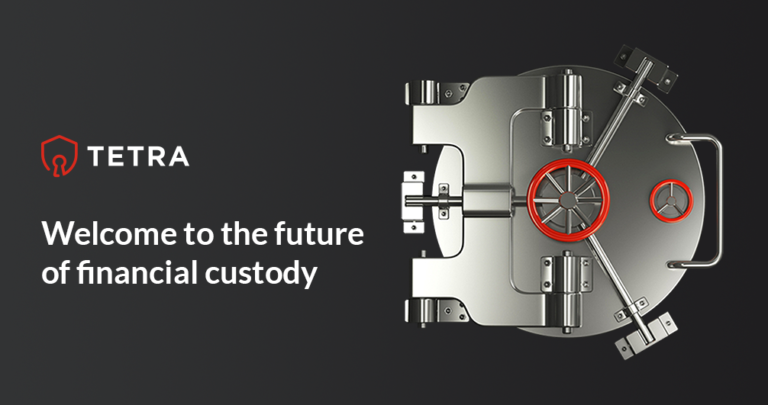
Stephen Oliver is the Chief Compliance Officer for Tetra Trust Company, a Calgary-based regulated digital assets custodian serving the Canadian market. Steve is also an instructor at the University of Calgary, where he lectures on corporate governance.
Steve sat down with Fintech.ca this week to talk about a regulatory initiative recently completed by Tetra to meet regulatory requirements as well as to share his views on the broader Canadian digital assets landscape.
What role does Tetra Trust play in the digital assets space in Canada?
 SO: Tetra provides for the safe storage of digital assets for Canadian institutions. Tetra uses a multi-solution approach to cold storage that can be tailored to our clients’ specific needs. Regardless of the solution used, Tetra’s clients benefit from a robust control framework and governance model that ensures no movement of assets occurs without multiple checks and balances.
SO: Tetra provides for the safe storage of digital assets for Canadian institutions. Tetra uses a multi-solution approach to cold storage that can be tailored to our clients’ specific needs. Regardless of the solution used, Tetra’s clients benefit from a robust control framework and governance model that ensures no movement of assets occurs without multiple checks and balances.
How does Tetra Trust view the current volatile industry environment?
SO: There’s no question recent corporate failures in our space have been a set-back to the confidence and trust of market participants. Clearly, recent events highlight the need for greater controls to be embedded and embraced across the industry. This is especially true for those entities entrusted with a fiduciary role, and that includes Tetra.
Despite the turbulence, Tetra remains confident in the outlook for digital assets. In fact, we expect recent events to be a catalyst for regulated and reputable firms to continue to build solutions that will drive wider adoption.
What are some of the key controls that Tetra implements as a regulated trust company?
SO: First and foremost, Tetra is a trust company, and the primary implication of this structure is that legal title of client assets never transfer to Tetra. Also it’s imperative to note that Tetra does not rehypothecate or lend client assets.
Tetra is a regulated entity under the Loan and Trust Corporations Act of Alberta, meaning our clients can take comfort that there are strict controls that Tetra must abide by, with ongoing oversight provided by regulatory bodies.
Tetra remains the only regulated qualified custodian in Canada with a speciality focus on digital assets. From inception, Tetra was created with a view to operate as a regulated entity. The process to get regulatory approval was lengthy, but it was a core element that Tetra viewed as essential for a custodian to service this space.
We are fully cognizant of the responsibility that comes with operating a regulated entity. Examples of the regulatory requirements Tetra must abide by as a trust company include regular reporting of third party audited proof of reserves, annual completion of a SOC 2 Type 2 report conducted by an independent party, and regulatory capital reserve liquidity requirements.
Beyond specific trust company regulatory requirements, we of course also have reporting obligations to FINTRAC and are subject to Canada’s anti-money laundering and anti-terrorist financing regulations. This includes submitting Large Virtual Currency Transactions reports, Suspicious Activity Reports, and abiding by what’s known as the Travel Rule.
What is the Travel Rule and how is it applied in the crypto space?
SO: The Travel Rule is actually very simple in concept, whereby any virtual currency in the amount of $1,000 or more exchanged amongst entities deemed as financial entities or money services businesses, must be accompanied with certain identity details – such as name and address – of those involved in the transfer of assets. The fundamental purpose of the rule is simply to ensure an exchange of information sufficient to create a suitable AML audit trail.
However, while this is a simple and established task in traditional finance, it becomes rather complicated in virtual currencies due to technical and privacy issues.
How has the crypto industry handled the Travel Rule?
SO: Many industry market participants collectively engaged on the matter to work with the regulators and develop solutions. Ultimately, solutions were developed both by industry-led coalitions and by service providers. Personally, I was impressed with the coordinated efforts by the industry to address a regulatory hurdle to remain in compliance with the regulations.
What is the solution developed by Tetra?
SO: To our knowledge, Tetra is the only market participant in Canada which has developed a bespoke proprietary solution for our own operations, and for the benefit of our clients.
Tetra had originally joined an industry coalition, however we recognized that the most efficient and scalable solution for our operations would be to develop our own Travel Rule solution internally.
We saw this as an opportunity to demonstrate Tetra’s commitment to not just embracing regulations, but actively contributing to finding innovative ways of ensuring that digital assets can abide by the regulations, most of which are designed for the traditional finance market. We believe that compliant operations by firms will be the catalyst to mass adoption of digital assets, and Tetra will continue to contribute to that effort.
And so we took a decision to dedicate resources to development directed at the Travel Rule.
In short, we developed an automated process so that when an interaction occurs amongst Tetra and a client which meets the Travel Rule criteria, a notification is sent to an authorized user of the client – most often a member of their compliance team. The notification will direct the user to a secured website where the required Travel Rule information is housed.
How does this benefit your clients?
SO: Our clients – particularly those with Travel Rule reporting requirements – will be able to depend on Tetra to provide a solution to this regulation that is simple, private and verifiable. Even for those clients for whom the Travel Rule does not apply, we believe they will appreciate the efforts that Tetra is taking to be the most trusted custody partner in Canada.
This initiative was bigger than just addressing the Travel Rule. It is reflective of our priorities as a company. Our clients come to Tetra because they want to work with a custodian they can trust. Our initiative on creating a proprietary Travel Rule solution is another tangible way of demonstrating how Tetra puts emphasis on ensuring a robust control framework is in place. This is one way in which Tetra builds trust with clients.
What’s next with respect to regulation in this space?
SO: Regarding regulations, Canada is in an advantageous position relative to many other jurisdictions for a number of reasons.
First, Canada has a relatively good level of clarity with respect to the regulatory framework. For the most part, firms participating in this space know what is expected of them.
Second, Canada’s existing framework is proving beneficial and effective, as evidenced by none of the numerous industry failures over the past year originating from Canada.
Finally, Canada’s regulatory bodies are making efforts to continue to improve the clarity and controls for this space. Our regulators engage with industry and solicit feedback on how to foster innovation in a disciplined and sustainable manner. Tetra regularly engages with the various regulators to share our views and will continue to dedicate efforts to making the digital assets space safe and accessible.


Leave a Reply